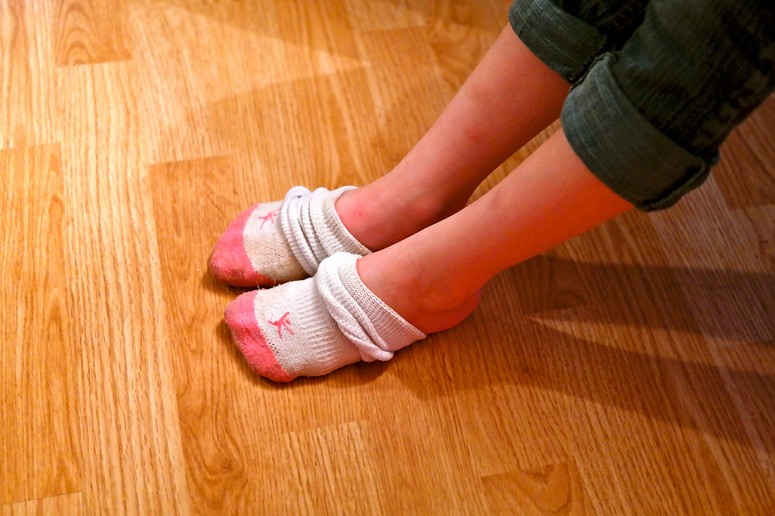 I have a super smart neighbor that’s now retired. After competing in the Olympics in track, he became a college professor as is the quintessential deep thinker. He dropped the following sentence at church recently, which gave me pause:
I have a super smart neighbor that’s now retired. After competing in the Olympics in track, he became a college professor as is the quintessential deep thinker. He dropped the following sentence at church recently, which gave me pause:
“Most humans don’t want the truth—they want to be told they’re okay.”
He’s got a point. I’m not sure if “most” humans don’t want the truth, but I know I lot of them would rather be told (or delude themselves) into thinking they’re okay. Granted, I think most humans are okay, but I think this line of thinking prevents us from progressing at times, myself included.
What do you think: Do humans value acceptance more than truth? And are the two mutually exclusive?
 I was recently asked what I know for sure. I didn’t have time to answer everything in detail, but upon further reflection, this is what I would have told them.
I was recently asked what I know for sure. I didn’t have time to answer everything in detail, but upon further reflection, this is what I would have told them.
- We live on the most beautiful planet in the universe. There are over 400 million planets in our galaxy alone and an estimated 21 million more galaxies in the observable universe (i.e. the only part of space that we can see with telescopes and far reaching satellites). So far, we’ve only observed all brown, red, or blue planets with no water or diversity on them. We are literally living on a home that is 1 in several gazillion. The math doesn’t even make sense—it’s that rare, meaning there is a God or we won the greatest evolutionary lottery in the known universe. Either way it’s profoundly beautiful.
- Possessing a human body is a beautiful experience. I love the animal kingdom, but other species don’t hold a candle to the awesome existence of being a human. If you are reading this, again you won the universal lottery for most amazing species in the known universe. It. Is. Wonderful.
- Humans are inherently good. They can be trusted, they really do try, the sometimes change, and they will amaze you if you let them. Don’t let the lemons or fear mongers tell you otherwise. We would have not have gotten as far as we have as a species if that weren’t the case.
- The world is in good hands. On a similar note, people who say that youth cannot be trusted have no idea what they’re talking about because they only talk or listen to older people, especially loudmouth ones on TV. Having worked closely with youth for many years, they are even better than we are, just like we are largely better, more educated, more disciplined, and more empathetic than generations that came before us. Statistics bear this out, in fact. So don’t be old by saying the world is going to hell. It’s not, and younger generations will figure out the future just like we did, even if we don’t understand the new rules they play by. Continue reading…
 When it comes to believing a story, most people think there are only two kinds of truth: objective realities (such as a physical head wound) and subjective realities (such as an untraceable but observable mental illness).
When it comes to believing a story, most people think there are only two kinds of truth: objective realities (such as a physical head wound) and subjective realities (such as an untraceable but observable mental illness).
But there is actually a third kind of truth: intersubjective reality, which depends on communication among many humans, rather than the observations, beliefs, or feelings of a few individuals.
Take currency, for example. Money only has value because we say it does. Is $100 bill really worth $100? Only because a lot of respected people (i.e. governments) say it is.
Similarly, the stock market is another great example of intersubjectivity, since a stock is only worth as much as a lot of people believe it is.
Same goes for alma maters, sports teams, companies, even nations. While we can physically view these institutions, they only have value because a lot of people believe in them. From an objective or pure subjective point of view, they do not exist.
Interestingly, intersubjective realities are just as influential (if not more so) than objective and subjective realities.
I’m not saying they shouldn’t be. But they are a fascinating and powerful reminder of just how social we are as a species. It’s another phenomenon that makes us uniquely human.

Blake Snow
“If you approach two people in the middle of a conversation, and they only turn their torsos and not their feet, they don’t want you to join the conversation,” teach the smart people of Quora. “Similarly, if you are in a conversation with a coworker who you think is paying attention to you, and their torso is turned towards you but their feet are facing another direction, they want the conversation to end.”
Wonderful observation. Another one I like: “If you are angry at the person in front of you driving like a grandmother, pretend it is your grandmother. It will significantly reduce your road rage.” As of 6:58 yesterday on I-15 southbound, I can confirm this works.
Speaking of feet: Did I pass that on? Human genetics are incredible

Blake Snow
See how my daughter is wearing her socks? I’m the only other person I know that does that, particularly if my ankles get hot.
Your ankles get hot? Yeah, my ankles get hot.
The complexing thing about this behavior, however, is that I haven’t “half socked” in years, certainly not since my daughter was old enough to notice. “Where did you learn to do that??!!” I asked in amazement the first time I witnessed her doing it. “I don’t know,” she shrugged. “Why?” I followed up. “Because my feet were hot.”
Maybe my daughter did observe me doing it and followed suit. Maybe she saw some other weirdo do it and mimicked them. I don’t doubt other explanations.
But maybe, just maybe, my daughter did it because her genetics told her to. Maybe, just maybe, human offspring remember select quirks that having nothing to do with evolution and everything to do with social continuity.
As a father, it was an exhilarating connection that I imagine gets better with age.
One of the most fascinating things I observe as a father is the seemingly useless genes I impart on my offspring. Things like collecting non-precious rocks at a young age and biting my lower lip when I see something cute or cuddly.
Although still amusing, seeing my temperament traits being passed on is expected. (You know, high energy, strong emotions, stuff like that.) Why on earth, then, is it so important for things like collecting junk or biting lips to persist? Would it be such a bad thing if people stopped collecting crap or making funny faces when they got excited?
Although I no longer fill my bottom drawer with non precious materials, I know my 2yo will. Just like I know my 4yo will probably bite her lower lip every freakin’ time she’s sees a kitten or encounters her cute little baby sister.
Just like her father.
 I have a super smart neighbor that’s now retired. After competing in the Olympics in track, he became a college professor as is the quintessential deep thinker. He dropped the following sentence at church recently, which gave me pause:
I have a super smart neighbor that’s now retired. After competing in the Olympics in track, he became a college professor as is the quintessential deep thinker. He dropped the following sentence at church recently, which gave me pause:
 I was recently asked what I know for sure. I didn’t have time to answer everything in detail, but upon further reflection, this is what I would have told them.
I was recently asked what I know for sure. I didn’t have time to answer everything in detail, but upon further reflection, this is what I would have told them. When it comes to believing a story, most people think there are only two kinds of truth: objective realities (such as a physical head wound) and subjective realities (such as an untraceable but observable mental illness).
When it comes to believing a story, most people think there are only two kinds of truth: objective realities (such as a physical head wound) and subjective realities (such as an untraceable but observable mental illness).
